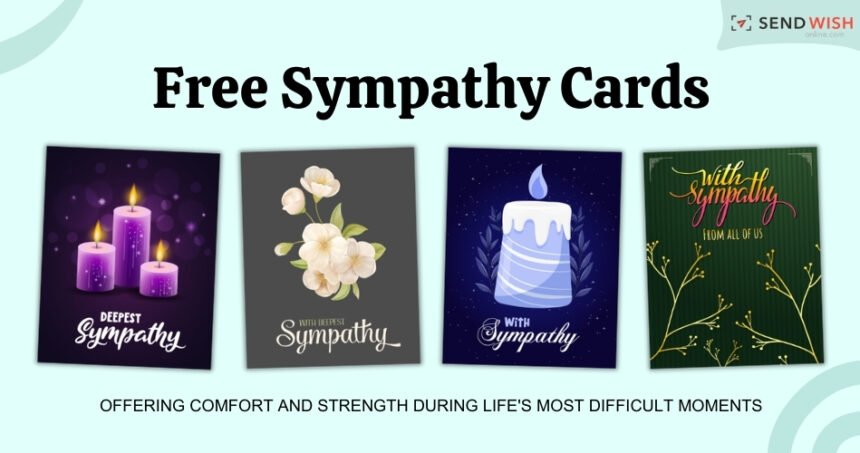The loss of a loved one is one of the most difficult experiences we can go through. It can be hard to know what to say or do to comfort someone who is grieving. A sympathy card is a simple but meaningful way to show your support.
Sympathy cards can offer comfort in a number of ways. They can:
- Express your condolences. A Free sympathy cards is a way to let the grieving person know that you are thinking of them and that you care. You can express your sympathy in your own words or by using a pre-written message.
- Share memories of the deceased. If you knew the deceased, you can share memories of them in your sympathy card. This can help the grieving person to remember the good times they had with their loved one.
- You can offer to help with practical tasks, such as cooking meals or running errands. You can also offer to simply be there to listen.
- Give the grieving person something to hold onto. A sympathy card is a physical reminder of your support. The grieving person can keep the card in their home or carry it with them as a source of comfort.
If you are considering sending a sympathy card, there are a few things to keep in mind. First, choose a card that is appropriate for the occasion. There are many different types of sympathy cards available, so you can find one that fits the personality of the deceased and the grieving person.
Second, be sincere in your message. The grieving person will be able to tell if your message is genuine. Write from the heart and let the grieving person know how much you care.
Sympathy cards are a valuable way to show your support to someone who is grieving. They can offer comfort, support, and a reminder that they are not alone. If you are considering sending a sympathy card, I encourage you to do so. It is a small gesture that can make a big difference.
The impacts of sympathy cards:
- Sympathy cards can provide comfort and support to the grieving person. They can be a reminder that they are not alone in their grief, and that there are people who care about them.
- Sympathy cards can help the grieving person to remember the deceased. The card can provide a space for the grieving person to write down their memories of the deceased, or to share stories about them.
- Sympathy cards can offer words of comfort and hope. The card can provide the grieving person with words of comfort and encouragement, to help them through their grief.
- Sympathy cards can be a way to connect with the grieving person. The card can be a way to let the grieving person know that you are thinking of them, and that you are there for them if they need anything.
In a study published in the journal “Family and Community Health,” researchers found that sympathy cards can have a positive impact on the grieving process. The study found that people who received sympathy cards were more likely to feel supported and comforted, and they were less likely to experience symptoms of grief such as sadness, anger, and anxiety.
Another study, published in the journal “Mortality,” found that online sympathy cards can help to facilitate the grieving process by providing a space for the grieving person to express their emotions.
The impact of sympathy cards can vary from person to person. However, for many people, sympathy cards can be a valuable source of comfort and support during the grieving process.
Here are some additional thoughts on the impact of sympathy cards:
- Sympathy cards can be a way to validate the grieving person’s feelings. The card can acknowledge the person’s pain and loss, and it can let them know that their feelings are normal.
- Sympathy cards can help the grieving person to feel connected to others. The card can let the person know that they are not alone in their grief, and that there are people who care about them.
- Sympathy cards can be a way to give hope to the grieving person. The card can offer words of comfort and encouragement, and it can let the person know that they will eventually get through their grief.
If you are ever unsure of what to say in a sympathy card, you can always start by simply saying, “I’m so sorry for your loss.” You can then share your memories of the deceased.






